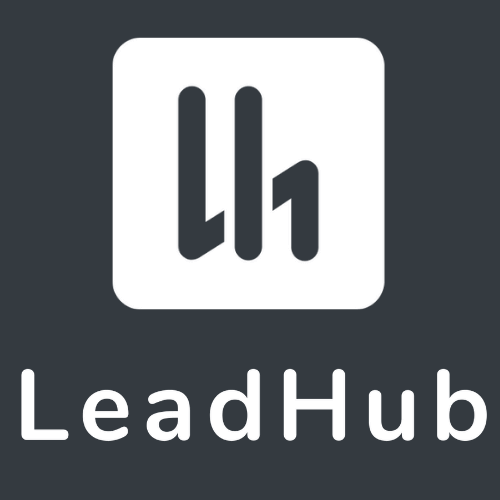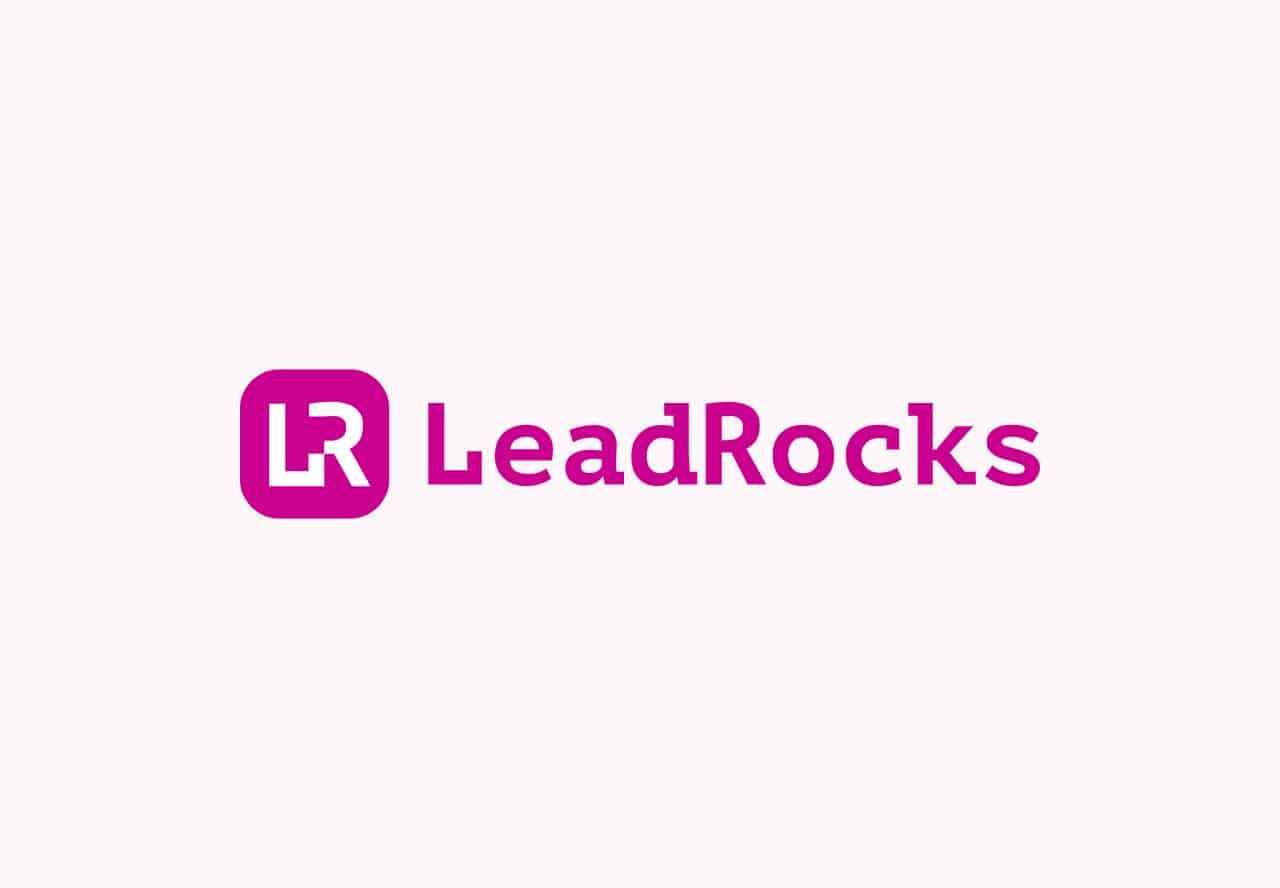Description

HelloLeads CRM

LeadPath
Comprehensive Overview: HelloLeads CRM vs LeadPath
HelloLeads CRM and LeadPath are both tools designed to help businesses manage their leads and customer relationships more effectively, though they cater to slightly different needs and market segments. Here’s a detailed overview of each, including their primary functions, target markets, market share, user base, and key differentiating factors:
HelloLeads CRM
a) Primary Functions and Target Markets:
-
Primary Functions:
- Lead Management: HelloLeads CRM helps businesses capture, manage, track, and follow up on leads effectively. It offers features like lead scoring, automated follow-ups, and reminders.
- Contact Management: It allows for organizing and managing contact information efficiently.
- Sales Tracking: The tool provides insights into the sales pipeline and helps track the progress of leads through various stages.
- Communication Tools: Integration with communication tools for emails, SMS, and calls, providing a centralized hub for all customer interactions.
- Mobile App: A significant feature of HelloLeads CRM is its mobile application, which is designed to work seamlessly with the desktop version, making it a great choice for field sales teams.
-
Target Markets:
- HelloLeads CRM primarily targets small to medium-sized businesses (SMBs) that need a straightforward and easy-to-use solution for lead and contact management.
- Industries including retail, real estate, healthcare, and education often benefit from HelloLeads.
b) Market Share and User Base:
- As of the latest data, HelloLeads CRM holds a smaller market share compared to more established CRM products like Salesforce or HubSpot, primarily due to its focus on SMBs.
- Its user base is expanding globally, particularly in regions where businesses are looking for cost-effective CRM solutions.
c) Key Differentiating Factors:
- Simplicity and Ease of Use: HelloLeads is designed to be user-friendly, without the complexity found in larger CRM systems.
- Cost-Effectiveness: Offers a more affordable solution for SMBs who need essential CRM functionalities without exhausting their budget.
- Mobile-First Approach: The emphasis on mobile functionality allows field teams to manage leads while on the go enabling quicker response times and better customer interaction.
LeadPath
a) Primary Functions and Target Markets:
- Primary Functions:
- Lead Capture and Routing: LeadPath specializes in capturing and distributing leads from various marketing channels to sales teams.
- Form Builder and Customization: Offers tools to create custom lead capture forms that can be easily integrated with websites or social media.
- Lead Scoring and Nurturing: Features robust lead scoring algorithms to prioritize leads and automate lead nurturing processes.
- Analytics and Reporting: Provides detailed analytics and reporting features to track sales performance and marketing ROI.
- Target Markets:
- LeadPath is targeted more towards companies with a heavy reliance on digital marketing, such as online retailers, digital agencies, and large enterprises looking to streamline their lead management from multiple channels.
b) Market Share and User Base:
- Compared to HelloLeads, LeadPath caters to medium to large enterprises, giving it a relatively smaller user base but a strong presence in the digital marketing-focused market segment.
- It competes with other digital-focused CRM systems and lead management software tools.
c) Key Differentiating Factors:
- Digital Marketing Focus: Unlike typical CRMs, LeadPath is geared towards enhancing lead management specifically for digital marketing channels.
- Advanced Customization and Integration: Offers highly customizable tools and integrations that can sync with a business’s existing digital marketing stack.
- Robust Analytics: Superior analytics capabilities are tailored to serve businesses that require detailed insights into their online lead generation efforts.
Comparison
When comparing HelloLeads CRM and LeadPath, it's clear that the two products serve different purposes with some overlap. HelloLeads CRM excels with its streamlined approach and mobile functionality, making it ideal for SMBs and field sales teams. On the other hand, LeadPath offers advanced lead management, particularly suited for businesses heavily engaged in digital marketing, emphasizing capturing and routing leads from various online sources.
Each tool's choice will depend significantly on a business's specific needs, size, industry, and budget considerations. Smaller businesses or those needing a cost-efficient and easy-to-use CRM may gravitate towards HelloLeads, while more digitally-focused companies seeking robust lead analytics might prefer LeadPath.
Contact Info

Year founded :
2015
+91 99135 31445
Not Available
India
http://www.linkedin.com/company/helloleadscrm

Year founded :
2015
+1 312-219-9660
Not Available
United States
http://www.linkedin.com/company/leadpath
Feature Similarity Breakdown: HelloLeads CRM, LeadPath
When comparing HelloLeads CRM with LeadPath, it's important to evaluate the core features, user interfaces, and any unique offerings that distinguish these platforms. Here's a feature similarity breakdown:
a) Core Features in Common
-
Lead Management: Both HelloLeads CRM and LeadPath provide comprehensive tools for capturing, organizing, and tracking leads. They allow users to manage their leads efficiently through a centralized dashboard.
-
Contact Management: Both platforms offer robust contact management systems that help users store, categorize, and update contact information seamlessly.
-
Pipeline Management: They provide features to visualize the sales pipeline, track opportunities, and manage sales processes to help users move leads through various stages.
-
Reporting and Analytics: Basic reporting and analytics features are available in both, providing insights into sales performance, lead conversion rates, and other key metrics.
-
Integrations: Both CRMs allow for integrations with various third-party applications and email platforms, enhancing productivity and connectivity.
-
Mobile Accessibility: Both offer mobile applications to enable users to access their CRM data and update information on the go.
b) User Interface Comparison
-
HelloLeads CRM: This platform is designed with simplicity and ease of use in mind. The interface is clean and intuitive, focusing on quick lead capturing and management. It often appeals to small businesses and startups due to its straightforward design.
-
LeadPath: LeadPath may have a more robust interface with slightly more advanced features designed for customization and scalability. Its UI is intended to handle more detailed analytics and reporting, making it suitable for users who need in-depth management capabilities.
c) Unique Features
-
HelloLeads CRM:
- Quick Lead Capture: Offers features like quick add lead forms and lead capture from business cards, which is particularly user-friendly for events and trade shows.
- Focus on Conversational Management: The platform emphasizes lead engagement through call reminders, follow-up tasks, and quick notes.
-
LeadPath:
- Customizable Forms and Landing Pages: LeadPath provides more extensive customization options for creating forms and landing pages tailored to user needs.
- Advanced Lead Scoring: It may have more sophisticated lead scoring capabilities, allowing sales teams to prioritize leads more effectively.
- API for Developers: Offers robust API access for developers to customize and integrate the system more deeply into existing business processes.
Both platforms serve the fundamental needs of CRM users but are tailored to slightly different use cases and business sizes. HelloLeads CRM is more suited to smaller teams who value simplicity, while LeadPath may cater to businesses needing more advanced customization and analytical features.
Features

Not Available

Not Available
Best Fit Use Cases: HelloLeads CRM, LeadPath
When considering CRM solutions like HelloLeads CRM and LeadPath, it's essential to evaluate how these platforms align with the specific needs of different businesses or projects. Here’s a breakdown of the best fit use cases for HelloLeads CRM and LeadPath:
HelloLeads CRM
a) Types of businesses or projects:
-
Small to Medium Enterprises (SMEs): HelloLeads CRM is designed with simplicity and user-friendliness in mind, making it ideal for small to medium-sized businesses that may not have extensive IT resources or CRM expertise.
-
Field Sales Teams: Businesses with a focus on field sales can benefit from HelloLeads' mobile capabilities, which allow sales reps to access information and update leads on-the-go.
-
Event-Based Lead Management: It's particularly useful for businesses that frequently participate in trade shows, exhibitions, and conferences where capturing and managing leads quickly is crucial.
-
Service-Based Industries: Companies that rely heavily on maintaining and nurturing customer relationships, such as real estate, consulting, or marketing agencies, can leverage HelloLeads to track interactions and manage follow-ups effectively.
LeadPath
b) Preferred scenarios:
-
Lead-Centric Operations: LeadPath excels in scenarios where the primary focus is on capturing, tracking, and converting leads, especially in B2B contexts where lead nurturing is crucial.
-
Customizable Lead Management Processes: Organizations requiring tailored lead flows and qualification processes may find LeadPath appealing due to its flexibility in managing complex sales pipelines.
-
Integration Focused Businesses: For companies that emphasize integrating lead management with other marketing automation tools to streamline data flow and improve overall efficiency, LeadPath can be a preferred choice.
-
Data-Driven Sales Strategies: Businesses that rely heavily on data analysis to drive sales strategies can take advantage of LeadPath's reporting and analytics capabilities to make informed decisions.
Industry Verticals and Company Sizes
How these products cater to different industry verticals or company sizes:
-
Industry Verticals:
- Real Estate: Both HelloLeads CRM and LeadPath provide strong lead management functionalities, crucial for real estate companies that need to manage a high volume of leads from various sources.
- Healthcare: For clinics or healthcare providers, HelloLeads CRM can help with patient follow-ups and streamlining appointment settings.
- Technology & SaaS: LeadPath, with its strong integration and customization capabilities, can be particularly useful for tech firms looking to manage complex sales cycles and integrate with other tech stacks.
-
Company Sizes:
- Startups and Small Businesses: HelloLeads CRM, with its straightforward setup and ease of use, is an excellent choice for startups and small businesses with limited resources.
- Medium to Large Enterprises: LeadPath's ability to handle more complex and scalable lead management processes makes it suitable for medium to large enterprises, especially those with specialized sales and marketing teams that need customizable solutions.
In summary, both HelloLeads CRM and LeadPath offer distinct advantages based on business size, industry, and specific lead management needs. HelloLeads is ideal for those prioritizing simplicity and mobility, while LeadPath caters to those requiring more customization and data-driven solutions.
Pricing

Pricing Not Available

Pricing Not Available
Metrics History
Metrics History
Comparing teamSize across companies
Conclusion & Final Verdict: HelloLeads CRM vs LeadPath
To provide a conclusion and final verdict for HelloLeads CRM and LeadPath, it’s essential to evaluate each product based on various critical factors such as features, usability, pricing, scalability, customer support, and overall customer satisfaction.
a) Considering all factors, which product offers the best overall value?
HelloLeads CRM is likely to offer the best overall value for small to medium-sized businesses looking for a streamlined and easy-to-use tool focused on lead management. It tends to be more affordable and user-friendly, especially for teams that do not require advanced features but instead prioritize simplicity and efficiency in capturing and managing leads.
However, if the requirement is for a more robust and comprehensive lead management system that offers extensive customization and integration with other business tools, LeadPath might present better value, especially for larger enterprises that need advanced features to support complex lead processes.
b) Pros and Cons of Choosing Each Product
HelloLeads CRM:
-
Pros:
- User-friendly interface which is great for quick onboarding.
- Cost-effective for small businesses and startups.
- Excellent mobile accessibility, providing flexibility to manage leads on-the-go.
- Simple integrations with other tools, which can be sufficient for small teams.
-
Cons:
- Limited advanced features and customization options compared to larger CRM systems.
- May not scale well for larger organizations with more complex lead management needs.
- Integrations might be limited compared to more comprehensive CRM platforms.
LeadPath:
-
Pros:
- Offers advanced features for detailed lead tracking and analytics.
- High level of customization to tailor the CRM to specific business needs.
- Good integration capabilities with other business systems and tools.
- Scalable, making it a potentially better fit for growing businesses and larger corporations.
-
Cons:
- Potentially higher cost, which might be prohibitive for very small businesses or startups.
- Steeper learning curve due to more complex features.
- Not as focused on mobility and ease-of-use for simple tasks as HelloLeads.
c) Specific Recommendations for Users Deciding Between HelloLeads CRM vs LeadPath
-
Assess Your Business Size and Needs:
- For small to medium-sized businesses or teams looking for a simple and cost-effective lead management system, HelloLeads CRM could be more suitable.
- For larger enterprises or businesses that expect to grow and need advanced features, customization, and integration, LeadPath would be a more strategic choice.
-
Consider Budget Constraints:
- If budget is a significant concern, especially for startups and smaller businesses, HelloLeads offers a more affordable solution.
- For businesses that can invest in a more feature-rich platform, LeadPath provides a better fit with its extensive capabilities.
-
Evaluate Technical Expertise:
- Teams with limited technical expertise might benefit more from the straightforward and intuitive interface of HelloLeads.
- Organizations with dedicated IT support or teams used to handling sophisticated software may appreciate the advanced functionalities offered by LeadPath.
-
Long-Term Scalability and Goals:
- HelloLeads CRM works well for stable businesses with consistent requirements and small teams.
- LeadPath is better for those who anticipate the need for scaling rapidly and require a CRM that can grow with the business.
In conclusion, the decision largely depends on the specific needs, size, budget, and technical capability of your business. Taking into account future growth and integration needs is crucial in making the right choice between HelloLeads CRM and LeadPath.
Add to compare
Add similar companies



